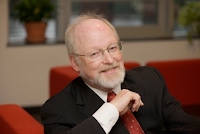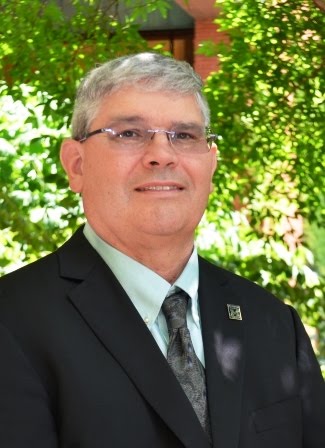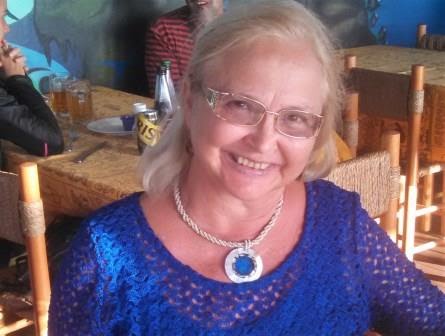[This workshop will be held in Japanese]
Mixed methods research (MMR) has been expanding worldwide, and Japanese researchers seem to be increasingly interested in it. MMR is an attractive way to research; however, there might be “hidden” pitfalls for Japanese researchers who start to run mixed methods studies. I have encountered some difficulties in understanding the meaning of integration and in constructing a formal mixed methods design. The aims of this workshop are to: 1) explain the process of Mixed Methods Observational Research for Informed Consent (MORE-IC) consultation, which investigates physician-patient interactions during informed consent consultations for cancer chemotherapy; 2) discuss the merits and demerits of MMR, based on my experiences; and 3) show “hidden” pitfalls that an MMR beginner can easily fall into. In this workshop, I will share my experiences and perspectives of MMR with the audience.
Taichi Hatta (Kyoto University)
Taichi Hatta was formally a biomedical scientist. He turned to empirical ethics halfway through his master course after realizing the process of informed consent greatly affects the quality of clinical research and practice. His research interests include the process of informed consent, shared decision making, and physician-patient relationships. During his doctoral program, he was awarded research funds for the project Mixed Methods Observational Research for Informed Consent (MORE-IC) consultation, which entailed self-teaching psychological statistics, qualitative research, and research methodology. Now, as a research fellow at the Center for iPS Cell Research and Application, Kyoto University, he is engaged in empirical bioethics research.
[This workshop will be held in Japanese]
Trajectory Equifinality Approach (TEA) is a new methodological framework for analyzing qualitative data useful for understanding process as well as historical, cultural and social contexts. Its basic ideas derive from Jaan Valsiner’s cultural psychology (Valsiner, 2001,2003) which is rooted in the semiotic approach to human lives(Sato,2016).TEA consists of three components:Trajectory Equifinality Model(TEM), Historically Structured Inviting(HIS), and Three Layers Model of Genesis(TLMG) that attract special attention as a form of Qualitatively-Driven Mixed Methods (QDMM;Kakai,2015).
This workshop has two main goals:
- introducing the basic tips of the broad scheme of TEA with TEM as a tool to finding ways to analyze the process model for mixed method research designs; and
- learning to develop TEM figures based on short reports prepared by the attendees
Attendees are encouraged to explore effective ways to incorporate the TEA approach in a mixed research method design.
Attendees will be asked to submit a short report on what motivated them to participate in this workshop.
Reference:
- Tatsuya Sato, Naohisa Mori, & Jaan Valsiner 2016 Making of The Future: The Trajectory Equifinality Approach in Cultural Psychology Information Age Publishing, Incorporated.
Mariko Hirose (Kwansai Gakuin University)
Mariko Hirose is a clinical developmental psychologist and Research Associate in the Graduate Department of Psychological Sciences at Kwansei Gakuin University. Ms. Hirose provides support services for youth affected by "Hikikomori," a social withdrawal syndrome. Currently, she serves as a community development support coordinator. She has developed a communication support program for adolescents with autism spectrum disorders and their families in cooperation with the developmental disabilities assistance center in the local government. Ms. Hirose has conducted research to development the new comprehensive support model for adolescents with autism spectrum disorders and their families using mixed methods research.
[This workshop will be held in Japanese]
While health disparities are an emergent public health concern in Japan, practitioners/researchers have started to take social determinants of health into consideration in practices. Also, considering such a rapidly aging society, the government started promoting the idea of building a comprehensive community care system in the community, in which we can support the elderly in leading autonomous lives at their own home in their community as long as possible. Recognizing these trends in health disparities has led to the development and implementation of public and social programs that integrate goals and aims of multiple sectors including health.
Evaluating these types of programs can be challenging because the diverse effects and impacts will be seen at different levels and sectors Further the manifestations of their impact on the society are not typically in a linier manner. Thus, it is almost impossible to execute the reliable evaluation without mixed methods approach.
This workshop will provide participants with the opportunity to get familiar with RE-AIM (Reach, Efficacy, Adoption, Implementation, and Maintenance) framework that supports to effectively practice Mixed Methods approach for the evaluation of multifaceted and non-linear-effect expected programs including goals and aims of several sectors.
Yoko Kawamura (Shizuoka University of Art and Culture)
Yoko Kawamura is Associate Professor at Shizuoka University of Art and Culture. Born in Shunan city in Yamaguchi prefecture, she worked for a private company after the graduation from Chuo University, Faculty of Law. After 2 year of working she decided to go to a graduate school in the US in 2000, and finished Master of Public Health in 2003 and PhD in Health Education and Promotion in 2006 at University of Alabama at Birmingham, School of Public Health, Department of Health Behavior. After a few years of post-doctoral training since she had come back to Japan, she served Associate Professor at Kumamoto University, Center for Policy Studies for 7 years until March, 2017.
Dr. Kawamura specializes in Health Promotion and Health Communication. Her research approaches are practical, working with people in communities and worksites. The research main theme is the development and evaluation of health communication intervention programs. She utilizes mixed methods research approaches for better understanding of dynamic phenomenon and intervention effects and impacts in the real world.
[This workshop will be held in Japanese]
Mixed Methods Research combines qualitative and quantitative research, which makes it a hybrid approach. This hybrid approach allows researchers to be inclusive in understanding the subjects of their research projects. However, disadvantages of this approach include the need to analyze a lot of data, and the need to integrate quantitative and qualitative data, which can be complex. For these reasons, mixed methods research projects are often conducted by a group of researchers working as a team.
Case studies using Mixed Methods can be conducted by practitioners in education and clinical medicine. The research can be carried out in the process of relating to the research subjects, and this allows novice researchers to conduct case studies. Indeed, mixed methods case studies can even be managed by a single researcher. Mixed methods case studies enable research subjects to be investigated subjectively and objectively, allowing researchers to understand the research subjects more deeply. In addition, mixed methods case studies also encourage researchers to reflect on their work practice as a practitioner, and thereby improve it. These are the reasons why a mixed methods case study is suitable for practitioners.
The aim of this workshop is to introduce mixed methods case studies. In order to do this, the workshop first reviews mixed methods designs. Then the workshop introduces a mixed method case study. Finally, each participant will write a research plan for a mixed methods case study based on their research interests.
(This workshop will be conducted in Japanese)
Chihiro Tajima (Gakushuin Women's College)
Chihiro Tajima, Ph.D. is an Associate Professor of the Faculty of Intercultural Communication at Gakshuin Women’s College in Tokyo. She wrote her Ph.D. dissertation using Mixed Methods, and since then she has been employing Mixed Methods in her research projects. Her specialized areas are Education, Applied Linguistics, and Intercultural Communication. Her current research project is being funded by the Ministry of Education in Japan. The research project is a longitudinal educational evaluation, comparing learning and outcomes of students studying abroad in various locations around the world. She is conducting this research project on her own. She is one of the founding members of JSMMR: Japan Society for Mixed Methods Research, and is currently a board member of this association.
[This workshop will be held in English]
Fully integrated mixed method studies maximize the potential for meaningful exchange between multiple sources of data to generate a more comprehensive picture of a social phenomenon. This interactive workshop introduces ways to build a mixed method way of thinking into the design of a study through the way a purpose statement and research questions are structured, the sampling procedure is established, analysis is conducted, and unexpected results are explored. Led by a professor who has been teaching graduate level courses in mixed methods research since the mid 1990s, this workshop is targeted to an audience of early career researchers with little or no prior knowledge of mixed methods research practice. Each participant will have the opportunity to write and refine a purpose statement and research questions for a mixed method study.
Learning objectives for the course are to:
- Distinguish between multi-method, mixed methods, and fully integrated mixed method research.
- Identify the major rationales for using a mixed method approach.
- Identify the types of purpose statements that are well suited to a mixed method approach.
- Characterize the qualities of a realistic mixed method dissertation.
- Model different ways to construct research questions for a mixed methods study.
- Provide examples of innovative ways to integrate qualitative and quantitative data through all phases of the research process.
Elizabeth G. Creamer (Virginia Polytechnic Institute and State University)

Elizabeth G. Creamer is professor of Educational Research in the School of Education and an affiliate faculty member in Engineering Education at Virginia Polytechnic Institute and State University in the U.S. She received a BA in English at Northwestern University, a masters in English and Reading Instruction at Colorado State University, and a doctorate from Virginia Tech. An interest in women’s recruitment and success in science and engineering spans Creamer’s career and is reflected in her on-going engagement as an external evaluator on funded projects at multiple universities. She has taught graduate level research methods courses in qualitative and mixed method research, including in an on-line format, since the mid 1990s. She is the author of the recently released textbook, An Introduction to Fully Integrated Mixed Methods Research, which foregrounds strategies for integrating qualitative and quantitative data and analytical procedures throughout all phases of the research process. She is co-editor of an up-coming volume, Methodological Innovation in Mixed Methods Research. Creamer holds the position of secretary of the Mixed Methods International Research Association (MMIRA). Creamer maintains a blog, Mixed Methods Research in the News, which offers a playful looked at how mixed method mindset fuels much of scientific research today.
[This workshop will be held in English]
Workshop detail to be announced soon.
John W. Creswell (University of Michigan)

John W. Creswell, Ph.D. is a Professor of Family Medicine and Co-Director, Michigan Mixed Methods Research and Scholarship Program at the University of Michigan. He has authored numerous articles and 27 books on mixed methods research, qualitative research and research design. While at the University of Nebraska-Lincoln, he held the Clifton Endowed Professor Chair, served as director of a mixed methods research office, founded the SAGE journal, the Journal of Mixed Methods Research, and was an Adjunct Professor of Family Medicine at the University of Michigan and a consultant to the Veterans Administration health services research center. He was a Senior Fulbright Scholar to South Africa in 2008 and to Thailand in 2012. In 2011 co-led a national working group on mixed methods practices at the National Institute of Health, served as a Visiting Professor at Harvard’s School of Public Health, and received an honorary doctorate from the University of Pretoria, South Africa. In 2014 he was the President of the Mixed Methods International Research Association. In 2015 he joined the staff of Family Medicine at the University of Michigan.
[This workshop will be held in Japanese]
The target audience is researchers in healthcare or social sciences interested learning fundamentals of how to structure a mixed methods research article for publication. The workshop uses an interactive-participatory approach. Based on the treasure hunting model, participants will review a published mixed methods paper, identify essential elements of a successful mixed methods research article, and understand how to: 1) incorporate the mixed methods design of the procedures; 2) utilize a procedural diagram of the MMR design; 3) locate the mixed methods research question or aim; 4) intertwine philosophies and theories into mixed methods studies; 5) depict integration of the qualitative and quantitative strands and the type of procedures; 6) utilize a joint displays to present the quantitative and qualitative results together; 7) consider research integrity threats; 8) illustrate how both strands used rigorous methods of data collection and analysis; 9) demonstrate value added by mixed methods relative to a single method approach.
Michael D. Fetters (University of Michigan)

Michael D. Fetters, MD, MPH, MA is a family medicine researcher and professor in the Department of Family Medicine at the University of Michigan. He founded and directs the University of Michigan Japanese Family Health Program. He serves as Co-Editor, Journal of Mixed Methods Research. Dr. Fetters has authored over 200 scholarly articles on topics such as family medicine, medical education, ethics and research methodology. Dr. Fetters has served as the principal investigator or methods lead on multiple nationally and internationally funded studies using qualitative and mixed methods research, and given internationally multiple mixed methods workshops. As Fulbright Distinguished Chair in the Social Science at Peking University of Health Sciences, fall semester 2016 he orchestrated and continues currently a mixed methods investigation on physician cancer communication in China, Japan and Thailand. He served as president of the 2015 Asia Regional Conference of Mixed Methods International Research Association in Japan.
Hisako Kakai (Aoyama Gakuin University)

Hisako Kakai, Ph.D. is Professor of Intercultural Communication at the Department of International Communication, School of International Politics, Economics, and Communication at Aoyama Gakuin University in Tokyo. Since its inauguration, she has been serving as President of Japan Society for Mixed Methods Research. Her research interests include culture and its influence on health-related communication and the role of critical thinking in health-related decision-making. Dr. Kakai has published numerous articles and books on these topics as well as mixed methods research both in English and Japanese. An Introduction to Mixed Methods Research: The Art of Integrating Qualitative and Quantitative Research (2015, Igakushoin) is regarded as the first original MMR book written in Japanese. Dr. Kakai is currently translating Dr. Creswell’s A Concise Introduction to Mixed Methods Research (2015, SAGE). Dr. Kakai serves as an editorial board member of Journal of Mixed Methods Research (Sage).
[This workshop will be held in English]
Developments in the use of mixed methods have extended beyond the practice of combining surveys and focus groups. The sophistication of mixed methods designs will be explained and demonstrated through illustrative examples taken from diverse sectors and geographical regions. The examples of mixed methods design will include studies deliberately focused on social transformation and improvement of the quality of life for members of marginalized and oppressed communities. The designs will provide guidance for researchers who wish to link their work in research using mixed methods to the improvement of social and environmental conditions for people in Asia. Mixed methods designs will include effectiveness of interventions and policy research. Participants will have the opportunity to create mixed methods designs using research vignettes for each type of research.
Donna M. Mertens (Gallaudet University)

Donna M. Mertens, Ph.D. is Professor Emeritus at Gallaudet University with a specialization in research and evaluation methodologies designed to support social transformation. She has authored, co-authored, or edited over 15 books relate to research and evaluation methods and human rights, most recently Research and Evaluation in Education and Psychology: Integrating Diversity with Quantitative, Qualitative, and Mixed Methods, Indigenous Pathways into Social Research, Program Evaluation Theory and Practice, and Transformative Research and Evaluation. Her scholarly work focuses on the intersection of research and evaluation with social justice and human rights and is situated within the philosophical assumptions of the transformative paradigm. She taught MA and PhD hearing and deaf students in education, psychology, social work, administration, and international development for 32 years. She has conducted professional development related to transformative mixed methods in many contexts, e.g., the Australasian Evaluation Society in Australia and New Zealand; the African Evaluation Association in South Africa, Niger, and Ghana; the Grupo de Institutos, Fundações e Empresas in Brazil; the World Bank and the Community of Evaluators in India and Nepal; the Sri Lankan Evaluation Association in Sri Lanka; UN Women and Evaluation Partners in Kazakhstan and Kyrgyzstan. Mertens also served as the Editor for the Journal of Mixed Methods Research 2010-2014.
[This workshop will be held in English]
Onwuegbuzie and Combs (2010) developed an inclusive framework for mixed analyses that incorporates all mixed analysis typologies from the extant literature, including the aforementioned typologies. In this interactive workshop, for new and seasoned researchers, I will demonstrate how utilizing this framework will enable researchers to conduct a more rigorous analysis of collected data by guiding their decisions pertaining to type of data collected, type of analysis appropriate for each data type, and level of data integration—leading to appropriate meta-inferences (i.e., wherein inferences stemming from both the qualitative and quantitative findings are combined into a coherent whole). Attendees will be provided with an exemplar that shows how this framework was used to drive the mixed analysis. Further, I will provide meta-frameworks, frameworks, and heuristics for selecting and applying data-analytic approaches (e.g., concurrent mixed analyses, sequential mixed analyses), methods (e.g., quantitizing, qualitizing), and techniques (e.g., narrative profile formation) and validating, interpreting, and reporting results in mixed methods research studies. Finally, I will provide published examples and illustrate applications of software (e.g., SPSS, QDA Miner) that integrate a variety of text analysis and statistical techniques.
Anthony (Tony) J. Onwuegbuzie (Sam Houston State University)
Anthony J. Onwuegbuzie is professor in the Department of Educational Leadership at Sam Houston State University, where he teaches doctoral-level courses in qualitative, quantitative, and mixed research. Further, he is Distinguished Visiting Professor at the University of Johannesburg. His research areas primarily involve social and behavioral science topics, including disadvantaged and under-served populations such as minorities, children living in war zones, students with special needs, and juvenile delinquents. Additionally, he writes extensively on an array of qualitative, quantitative, and mixed methodological topics.
With a current h-index of 74, Professor Onwuegbuzie has secured the publication of more than 400 works, including more than 300 journal articles, 50 book chapters, and 5 books. Additionally, he has delivered more than 900 presentations and 200 methodological workshops worldwide and more than 50 keynote addresses across six continents. He has received numerous outstanding paper awards. Professor Onwuegbuzie is former editor of Educational Researcher (ER), being part of the Editor team (2006-2010) that secured a first impact factor of 3.774. Currently, he is editor-in-chief of the mixed methods journal, International Journal of Multiple Research Approaches, and a co-editor of Research in the Schools. Further, Professor Onwuegbuzie has received national and international recognition for his teaching. Also, over the last decade, he has secured more than 30 grant awards.
Many of Professor Onwuegbuzie’s articles have been extensively read and cited. For example, his mixed research article published in ER not only has been the most read for the past 10 years, and currently is one of the most cited ER articles ever. Also, one of his mixed research articles published in the Journal of Mixed Methods Research (JMMR) is the most cited JMMR article ever. He is also the current president of the Mixed Methods Research International Association. His overall goal is to be a role model for beginning researchers and students worldwide.
[This workshop will be held in English]
This interactive workshop will introduce key concepts of community-engaged research and will demonstrate how to apply these concepts to develop participants' capacity to conduct a Photovoice project. Photovoice is a participatory-action, mixed-method project in which participants take photographs on a particular theme and then discuss them in small groups. The photographs and the group data thus help to identify community issues on which participants wish to work to produce change. Photovoice is recommended for participatory need and resource assessments, participatory and empowerment evaluations, and for reaching stakeholders and policy-makers who can use the findings to develop policies to address social and health problems. The workshop will include: Photovoice exhibit and discussion; how to develop Photovoice projects with vulnerable populations, including engagement, retention, class differences, and ethical and other considerations; the structure of Photovoice sessions; and the advantages and limitations of Photovoice as a mixed method. The exhibit includes photographs from members of a Community Collaborative Research Board involved in scientific research regarding the intersection of HIV, substance use and incarceration.
Rogerio Pinto (University of Michigan)
Rogério Meireles Pinto, LCSW, PhD. is Associate Professor at the UM School of Social Work and Associate Editor, Journal of Mixed Methods Research. He is interested in the integration of mixed methods in cross-sectional and longitudinal implementation research in the United States, Brazil and Spain. He uses mixed methods to study the impact of interprofessional collaboration on the delivery of evidence-based services, particularly to women and others most affected by HIV and substance abuse. His research, funded by the National Institute of Mental Health, focuses on the diffusion of HIV prevention and other related evidence-based services.